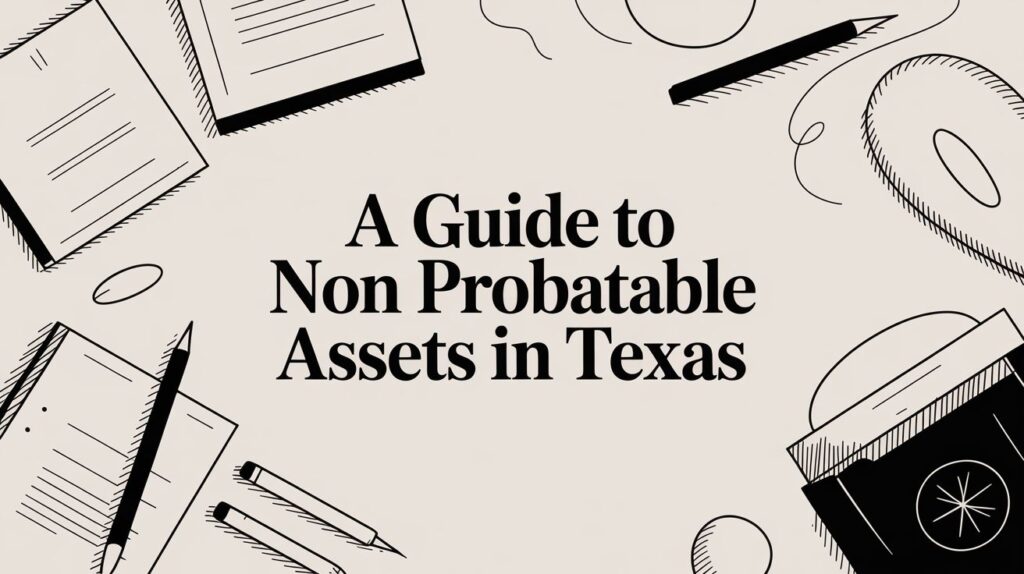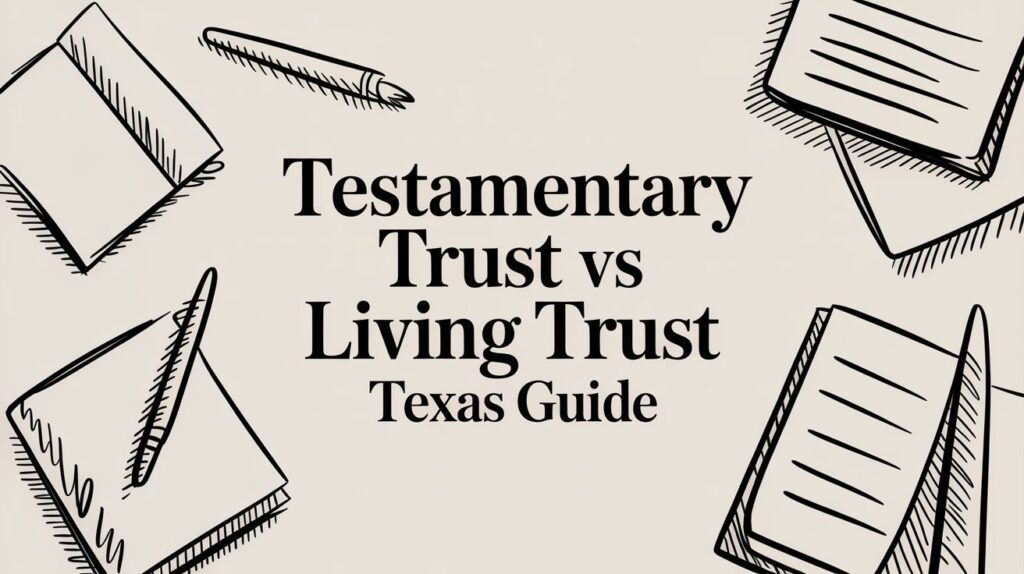If you’ve ever wondered, “Are Texas probate records public?”—you’re not alone. Whether you’re researching a family member’s estate, tracing property ownership, or even trying to verify the outcome of a will contest, knowing how Texas handles probate records can make all the difference. And yes, in most cases, Texas probate records are public—but that doesn’t mean they’re always easy to find.
In this guide, we’re diving deep into how to access Texas probate records, what information is available, and how to locate archived or older cases that may not be in digital databases. Using real-world stories and plain English, this article will help you understand the full scope of what’s accessible and how to get it without wasting time.

What Are Probate Records in Texas?
Before answering are Texas probate records public, it’s important to know what falls under the umbrella ofprobate records. Probate is the legal process of settling someone’s estate after they pass away. That includes:
- Validating the will
- Appointing an executor or administrator
- Paying off debts
- Distributing assets to beneficiaries
- Filing inventories and appraisals
- Resolving disputes
The court keeps documentation of everything filed during this process. These documents become probate records and are typically filed with the clerk of the county probate court or county clerk, depending on the size of the county.
Some common examples of probate records include:
- Wills andcodicils
- Letters testamentary (showing who was appointed executor)
- Inventory and appraisement forms
- Petitions to determine heirship
- Distributions and final accountings
These files often contain key information about a person’s property, family members, debts, and final wishes—which is why access to them can be so valuable.
So, Are Texas Probate Records Public?
Yes, Texas probate records are public in most cases. Texas law favors transparency in judicial proceedings, and probate courts are no exception. Anyone can go to a courthouse and request to view or copy probate files—no attorney required.
Exceptions to Public Access
That said, there are situations where records may be sealed or confidential:
- Sensitive documents like Social Security numbers, bank account numbers, or medical records might be redacted.
- Minor beneficiaries or guardianship cases may involve sealed files to protect privacy.
- Some older records may be lost, destroyed, or not yet digitized depending on the county.
But generally speaking, if you’re asking are Texas probate records public, the answer is yes they’re open to public inspection, with only limited exceptions.
.2211040435550.jpg)
Why Would Someone Want to Access Probate Records?
People seek probate records in Texas for all kinds of reasons personal, some legal, and some genealogical. Here are the most common motivations:
1. Family Research or Genealogy
Probate records often contain valuable information for tracing family lineage. If you’re building a family tree, you might find names of heirs, relationships, addresses, and even property descriptions in probate filings.
2. Property Ownership Verification
You may be buying or selling property and want to verify that title properly transferred through probate. Knowing whether the estate went through the courts and if there are outstanding claims can be crucial for real estate deals.
3. Contesting a Will or Estate Decision
In cases of disputed wills or questionable transfers of property, accessing probate records becomes essential. A probate file may contain clues about fraud, undue influence, or even overlooked heirs.
4. Locating Old Family Assets
Many people discover that an old property deed or asset might still be tied to a deceased relative. Probate records can help uncover whether that asset was ever distributed or is still lingering in legal limbo.
Where to Start: Locating Probate Records in Texas
The first step is knowing which county the probate case was filed in. In Texas, probate matters are handled at the county level, meaning each county has its own process and system for storing and accessing files.
Step 1: Identify the Correct County
If you know where the person lived or where they owned property at the time of death, start there. For instance, if your grandmother lived in Travis County when she passed, her probate case would have been filed there.
Step 2: Search Online Probate Databases
Many Texas counties now offer online search tools for probate cases. These portals allow you to search by name, case number, or filing date. Some counties with searchable probate databases include:
- Harris County
- Travis County
- Bexar County
- Dallas County
- Tarrant County
These websites often let you view a case summary and list of documents filed, though full document images may require registration or payment.
Pro Tip: Use multiple spelling variations if you’re unsure of the exact name—search systems are often sensitive to typos.
Step 3: Visit or Contact the County Clerk’s Office
If the probate case isn’t online or is older than 15–20 years, your best bet is to call or visit the county clerk or probate court clerk in person. Some records may be stored in off-site archives and require a request to retrieve.
When contacting the clerk, be ready to provide:
- Full name of the deceased
- Approximate date of death
- County of residence
- Case number (if available)
Fees may apply for copies or certified documents, but just viewing a file in person is usually free.
What If the Probate Case Is Really Old?
If you’re searching for older probate records—say from the 1800s or early 1900s—the process may take a bit more detective work. These records are often archived in microfilm, historical collections, or even state archives.
Texas State Library and Archives Commission
The Texas State Library and Archives is a goldmine for old probate files, especially those dating back more than 75 years. They house historical records from many counties and can assist researchers in locating files from defunct or merged jurisdictions.
You can contact them directly or browse their searchable indexes online. If you’re asking are Texas probate records public, even historic cases usually are—though you may need to submit a records request or visit in person to view them.
Local Genealogical Societies or Historical Associations
Some smaller or rural counties partner with local historical societies to manage old court documents. These groups often have volunteers who are passionate about preserving legal history and can help you locate long-lost probate records.
University Libraries and Special Collections
Major Texas universities like UT-Austin or Texas A&M maintain collections of historic legal documents, especially from surrounding counties. These archives may be especially helpful when seeking out estates tied to prominent families, historic properties, or major land grants.
Real-World Story: Using Probate Records to Trace Hidden Property
Emily had always heard stories about her great-uncle’s ranch in West Texas. No one in the family had seen it in decades, and it was assumed to have been sold. After her grandmother passed, Emily began digging into probate records in Midland County to see what really happened.
She located the probate file from 1987 and discovered that the property had been left in a trust to her father, who had never claimed it. The deed had never transferred, and taxes hadn’t been paid in over a decade. With legal help, Emily filed a petition to reopen the estate and recover the land.
Without knowing are Texas probate records public—and how to access them—her family might have lost the property forever.
What to Do If You Hit a Dead End
Sometimes, no matter how hard you search, probate records just can’t be located. Here are steps you can take if that happens:
- Double-check the county. If the deceased owned property in multiple locations, probate could have been filed elsewhere.
- Search under alternate names. Include maiden names, nicknames, and possible spelling errors.
- Ask relatives. Family members might remember the name of an attorney or court used.
- Check for small estate affidavits. If the estate was small, it might have avoided full probate altogether.
- Consult a probate attorney. Some lawyers specialize in title research and estate retrieval and may have access to legal tools you don’t.

Can You Access Probate Records Without Being an Heir?
Yes, you can. Because the answer to “Are Texas probate records public?” is largely yes, any member of the public can request or review these records. You do not have to be a family member, heir, or executor to access them.
This is especially helpful for real estate agents, genealogists, title companies, and legal researchers looking to confirm property ownership or inheritance history.
Tips for Accessing Probate Records Faster
To speed up your search process, try these shortcuts:
- Use official court websites whenever possible
- Bring ID and payment when visiting clerks in person
- Call ahead to verify if older records require appointment or off-site retrieval
- Use legal document request platforms if you’re short on time
- Ask for a docket sheet to see a timeline of filings without reviewing the full case file
Final Thoughts: Why Knowing Probate Records Are Public Matters
So, to circle back: Are Texas probate records public? In almost every situation—yes. From recent cases to century-old archives, probate records remain open to the public in Texas unless sealed for a very specific legal reason.
Understanding this gives you the power to:
- Reclaim family assets
- Verify rightful heirs
- Resolve title disputes
- Research legal history
- Support estate claims
Whether you’re doing this for personal reasons or legal necessity, Texas offers multiple pathways to uncovering probate records—you just need to know where to look and how to ask.








